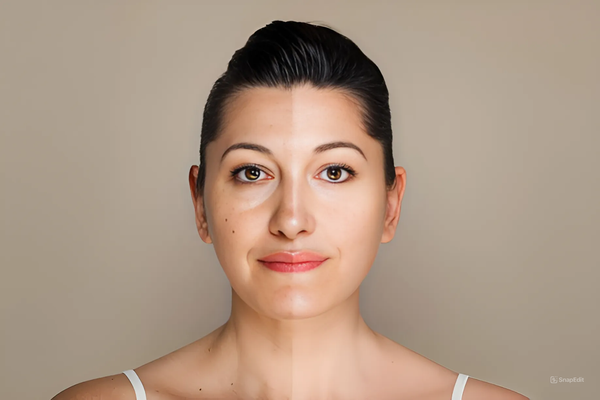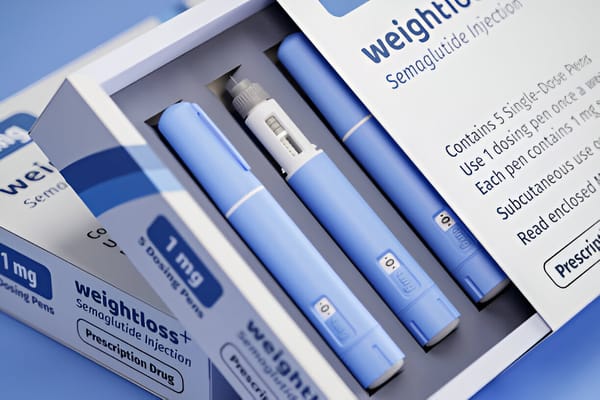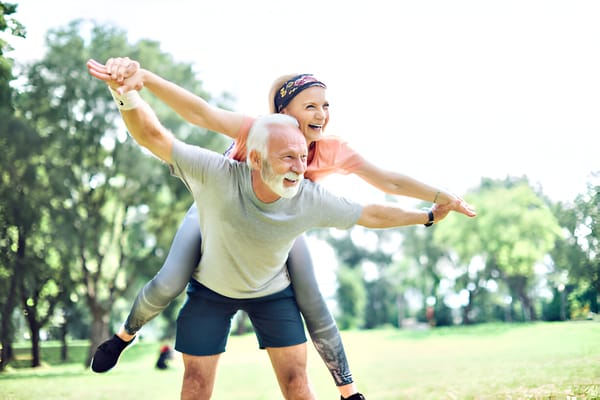The Role of Resveratrol, Antioxidants, and Exercise in Aging: A Reevaluation of Common Beliefs
This article explores the latest research on resveratrol, antioxidants, and their effects on aging, exercise, and cardiovascular health. It reevaluates the role of supplements in promoting longevity and suggests exercise and mild oxidative stress may be more beneficial than previously thought.

Resveratrol and antioxidant supplements have long been promoted as solutions for slowing aging, preventing chronic diseases, and enhancing physical performance. However, recent research, particularly in human studies, challenges many of these assumptions, especially in the context of exercise and cardiovascular health. This article examines the complex interplay between glucose metabolism, mitochondrial function, antioxidant use, and resveratrol supplementation, specifically in aging populations, to analyze whether these supplements truly provide the benefits they are often attributed to.
Antioxidant Supplements and Mortality Risk
Antioxidant supplements, such as beta carotene, vitamins A, C, and E, and selenium, have been widely used to prevent diseases like cardiovascular disease, cancer, and diabetes. These antioxidants are thought to reduce oxidative stress, a key factor in aging and chronic disease. However, a meta-analysis of 68 randomized trials involving over 232,000 participants challenged the protective role of these supplements. The study found no significant overall effect on mortality, but beta carotene, vitamin A, and vitamin E supplementation were linked to a slight but significant increase in mortality risk. Vitamin C and selenium, on the other hand, did not show a significant effect on mortality.
These findings raise concerns about the widespread use of antioxidant supplements. They suggest that rather than being universally beneficial, these supplements might increase the risk of premature death, especially when taken by individuals without a diagnosed deficiency.
The Concept of Mitohormesis: The Benefits of Mild Oxidative Stress
A growing body of research suggests that not all oxidative stress is harmful. Impaired glucose metabolism and calorie restriction—both of which induce mitochondrial respiration—have been shown to extend lifespan in organisms such as Caenorhabditis elegans. This process generates reactive oxygen species (ROS), which would typically be seen as damaging. However, low levels of ROS trigger a protective response in the form of increased catalase activity, leading to improved oxidative stress resistance—a concept known as mitochondrial hormesis or "mitohormesis."
This challenges the belief that antioxidants are always beneficial. Studies show that antioxidants like vitamins C and E can prevent the lifespan extension caused by glucose restriction in model organisms. Instead, mild oxidative stress may be necessary to promote cellular health and longevity.
Resveratrol: A Double-Edged Sword in Exercise and Aging
Resveratrol, a polyphenol found in grapes and red wine, has been widely promoted for its potential to mimic the effects of calorie restriction and improve cardiovascular health. In rodent studies, resveratrol has been shown to enhance cardiovascular function, improve exercise performance, and slow down the progression of atherosclerosis. However, human studies, particularly in aged individuals, paint a more complicated picture.
In one study, 27 physically inactive men aged 65 and older were randomized to receive either 250 mg of trans-resveratrol or a placebo alongside eight weeks of high-intensity exercise training. The exercise training alone improved several cardiovascular and metabolic parameters, including a 45% greater increase in maximal oxygen uptake in the placebo group compared to the resveratrol group. The placebo group also saw significant decreases in mean arterial pressure (MAP), while the resveratrol group did not.
Furthermore, resveratrol supplementation reduced the positive effects of exercise on blood pressure, cholesterol levels, and plasma lipid profiles, including low-density lipoprotein (LDL) and triglyceride concentrations. Whereas exercise improved the formation of the vasodilator prostacyclin, resveratrol supplementation shifted the balance toward vasoconstriction by increasing muscle thromboxane synthase levels and lowering prostacyclin levels.
These results indicate that while resveratrol may have some beneficial effects in isolation, it can blunt the positive cardiovascular effects of exercise, particularly in older adults.
Exercise, Resveratrol, and Cardiovascular Health
Another study examined the effects of eight weeks of exercise training with and without resveratrol supplementation in aged men. Exercise training alone improved cardiovascular health parameters, including blood pressure, cholesterol levels, and maximal oxygen uptake. However, resveratrol supplementation significantly reduced these exercise-induced benefits, leading to diminished improvements in blood pressure and oxygen uptake.
Resveratrol also did not affect the atherosclerosis marker vascular cell adhesion molecule 1 (VCAM-1), nor did it alter the expression of Sirtuin 1 (SIRT1) protein, often associated with resveratrol's purported anti-aging effects. This study was the first to demonstrate the negative effects of resveratrol on exercise-induced cardiovascular improvements in humans and adds to the growing body of evidence questioning the effectiveness of resveratrol supplementation in humans.
Reevaluating the Role of Resveratrol and Antioxidants in Aging
The body of research indicates that the role of antioxidants and resveratrol in aging is far more complex than previously believed. While antioxidants were once considered essential to prevent aging and chronic diseases, their role is now being questioned, particularly in the context of exercise. Emerging evidence suggests that mild oxidative stress—often generated during exercise—may be beneficial by promoting mitochondrial resilience and triggering protective mechanisms within the body.
Resveratrol, often promoted for its anti-aging properties, may impair some of the benefits associated with exercise training, particularly in older adults. By blocking the production of ROS, resveratrol may prevent the hormetic benefits of oxidative stress, limiting exercise's positive effects on cardiovascular health and mitochondrial function.
Actionable Points: Optimizing Resveratrol and Antioxidant Use
- Exercise as the Foundation: The evidence overwhelmingly supports regular exercise as one of the most effective interventions for improving cardiovascular and metabolic health, especially in aging populations. Focus on exercise to enhance mitochondrial function and improve overall health.
- Cautious Use of Antioxidants: Given that antioxidants may interfere with the natural oxidative stress-induced benefits of exercise, their use should be approached cautiously, especially by individuals who regularly engage in physical activity. Avoid high doses of antioxidants unless medically necessary.
- Cycling Resveratrol: To potentially gain the benefits of resveratrol without diminishing exercise adaptations, consider cycling resveratrol at low doses and avoiding it on exercise days. This intermittent approach may allow individuals to experience resveratrol's antioxidant and anti-inflammatory effects while still reaping the natural benefits of exercise-induced oxidative stress.
- Balanced Diet over Supplements: Instead of relying on supplements, focus on a balanced diet rich in natural antioxidants from fruits and vegetables. Whole foods provide a variety of compounds that work synergistically, offering more comprehensive health benefits without the risks associated with high-dose supplements.
Conclusion: A New Paradigm for Aging and Health
As research evolves, it is becoming increasingly clear that antioxidants and resveratrol supplements are not the universal anti-aging solutions they were once thought to be. Instead, lifestyle interventions like regular exercise and calorie restriction, which induce mild oxidative stress and promote the body’s natural adaptive responses, may be more effective in promoting long-term health.
The current evidence suggests that, particularly for aging individuals, the use of resveratrol and antioxidant supplements may blunt the beneficial effects of exercise, which is one of the most effective strategies for improving cardiovascular and metabolic health. Therefore, focusing on exercise and proper nutrition, rather than relying on supplements, maybe a more effective approach to promoting longevity and maintaining health.
This evolving understanding of aging emphasizes the complexity of oxidative stress and the need to carefully consider the role of supplements in our health regimen. As we learn more, it becomes clear that balancing oxidative stress, rather than eliminating it, maybe the key to promoting a long and healthy life.
Sources
- Gliemann, Lasse & Schmidt, Jakob & Olesen, Jesper & Biensø, Rasmus & Peronard, Sebastian & Grandjean, Simon & Mortensen, Stefan & Nyberg, Michael & Bangsbo, Jens & Pilegaard, Henriette & Hellsten, Ylva. (2013). Resveratrol Blunts the Positive Effects of Exercise Training on Cardiovascular Health in Aged Men.. The Journal of physiology. 591. 10.1113/jphysiol.2013.258061.
- Olesen, J., Gliemann, L., Biensø, R., Schmidt, J., Hellsten, Y. and Pilegaard, H. (2014), Exercise training, but not resveratrol, improves metabolic and inflammatory status in skeletal muscle of aged men. J Physiol, 592: 1873-1886. https://doi.org/10.1113/jphysiol.2013.270256
- Schulz, T. J., Zarse, K., Voigt, A., Urban, N., Birringer, M., & Ristow, M. (2007). Glucose Restriction Extends Caenorhabditis elegans Life Span by Inducing Mitochondrial Respiration and Increasing Oxidative Stress. Cell Metabolism, 6(4), 280-293. https://doi.org/10.1016/j.cmet.2007.08.011
- Mortality in Randomized Trials of Antioxidant Supplements for Primary and Secondary PreventionSystematic Review and Meta-analysisGoran Bjelakovic, MD, DrMedSci; Dimitrinka Nikolova, MA; Lise Lotte Gluud, MD, DrMedSci; et al https://jamanetwork.com/journals/jama/article-abstract/205797
- Mankowski, R. T., Anton, S. D., Buford, T. W., & Leeuwenburgh, C. (2015). Dietary Antioxidants as Modifiers of Physiologic Adaptations to Exercise. Medicine and Science in Sports and Exercise, 47(9), 1857. https://doi.org/10.1249/MSS.0000000000000620
- Schriner SE, Linford NJ, Martin GM, Treuting P, Ogburn CE, Emond M, Coskun PE, Ladiges W, Wolf N, Van Remmen H, Wallace DC, Rabinovitch PS. Extension of murine life span by overexpression of catalase targeted to mitochondria. Science. 2005 Jun 24;308(5730):1909-11. doi: 10.1126/science.1106653. Epub 2005 May 5. PMID: 15879174.
- The Myth of Antioxidants https://www.ucl.ac.uk/~ucbtdag/Wenner_2013.pdf





